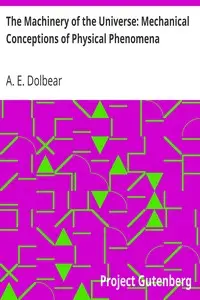"The History of Creation, Vol. 2 (of 2)" by Ernst Haeckel is a scientific book presenting evolutionary theory during the late 1800s. The volume explains the idea of descent from earlier forms, based on the thinking of Darwin, Goethe, and Lamarck. It looks into the history of life, studying how creatures changed over long periods of time and presenting evidence from fossils, growing embryos, and comparing the body structures of different animals. The beginning of the book introduces the complex relationships between living things and how they are all connected through evolution. This perspective highlights how our understanding of the classification of living things has evolved from a simple list to a record of how life has ancestry. Haeckel touches on major time periods in Earth's history, explaining that different layers of rock tell the story of how life progressed, from early times to the rise of humans. The book tackles tricky issues, like gaps in the fossil record and difficulties in studying how living things grow, emphasizing the role of nature in molding life.
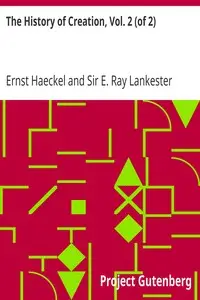
The History of Creation, Vol. 2 (of 2) Or the Development of the Earth and its Inhabitants by the Action of Natural Causes
By Ernst Haeckel
Journey through time to witness life's evolutionary saga, where fossils and embryos whisper secrets of how organisms transformed across geologic epochs.
Summary
About the AuthorErnst Heinrich Philipp August Haeckel was a German zoologist, naturalist, eugenicist, philosopher, physician, professor, marine biologist and artist. He discovered, described and named thousands of new species, mapped a genealogical tree relating all life forms and coined many terms in biology, including ecology, phylum, phylogeny, and Protista. Haeckel promoted and popularised Charles Darwin's work in Germany and developed the influential but no longer widely held recapitulation theory claiming that an individual organism's biological development, or ontogeny, parallels and summarises its species' evolutionary development, or phylogeny.
Ernst Heinrich Philipp August Haeckel was a German zoologist, naturalist, eugenicist, philosopher, physician, professor, marine biologist and artist. He discovered, described and named thousands of new species, mapped a genealogical tree relating all life forms and coined many terms in biology, including ecology, phylum, phylogeny, and Protista. Haeckel promoted and popularised Charles Darwin's work in Germany and developed the influential but no longer widely held recapitulation theory claiming that an individual organism's biological development, or ontogeny, parallels and summarises its species' evolutionary development, or phylogeny.

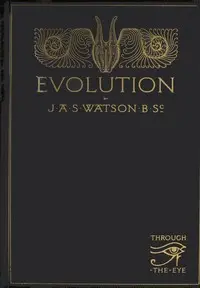
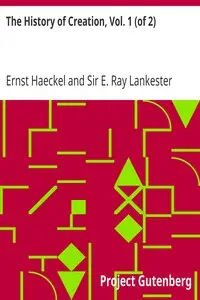


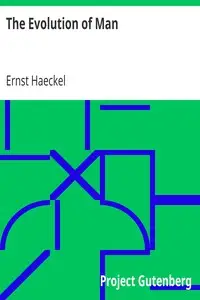
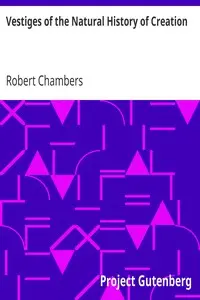

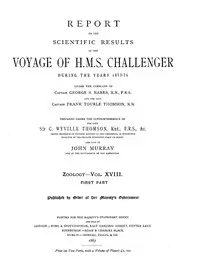
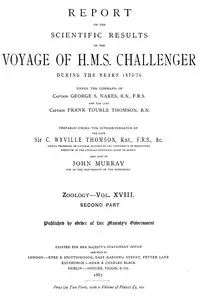


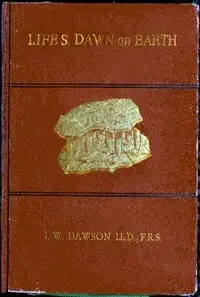
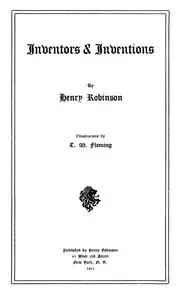
![Scientific American, Vol. XXXIX.—No. 24. [New Series.], December 14, 1878
A Weekly Journal of Practical Information, Art, Science, Mechanics, Chemistry, and Manufactures by Various](https://cdn.a2-host.cloud/fOh8kTUJXLipdKEHiwoMApI-Cw7K6cF2zeaKMv9Cwhs/rs:fill:215:325:0/g:ce/aHR0cHM6Ly9zcC1hc3NldHMuczMudXMtd2VzdC0wMDQuYmFja2JsYXplYjIuY29tL2Jvb2svMzg0ODAvU2NpZW50aWZpY19BbWVyaWNhbl9Wb2xfWFhYSVhOb18yNF9OZXdfU2VyaWVzX0RlY2VtYmVyXzE0XzE4NzhfQV9XZWVrbHlfSm91cm5hbF9vZl9QcmFjdGljYWxfSW5mb3JtYXRpb25fQXJ0X1NjaWVuY2VfTWVjaGFuaWNzX0NoZW1pc3RyeV9hbmRfTWFudWZhY3R1cmVzX2NvdmVyLmpwZw.webp)
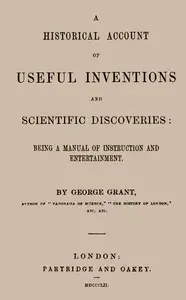
![Flytraps and Their Operation [1930] by F. C. (Fred Corry) Bishopp](https://cdn.a2-host.cloud/l7fZUrALitzvgX-BP9lnw8Lng8Bm5VTN5hx5cU69vs0/rs:fill:215:325:0/g:ce/aHR0cHM6Ly9zcC1hc3NldHMuczMudXMtd2VzdC0wMDQuYmFja2JsYXplYjIuY29tL2Jvb2svNjMyMjcvRmx5dHJhcHNfYW5kX1RoZWlyX09wZXJhdGlvbl8xOTMwX2NvdmVyLmpwZw.webp)
